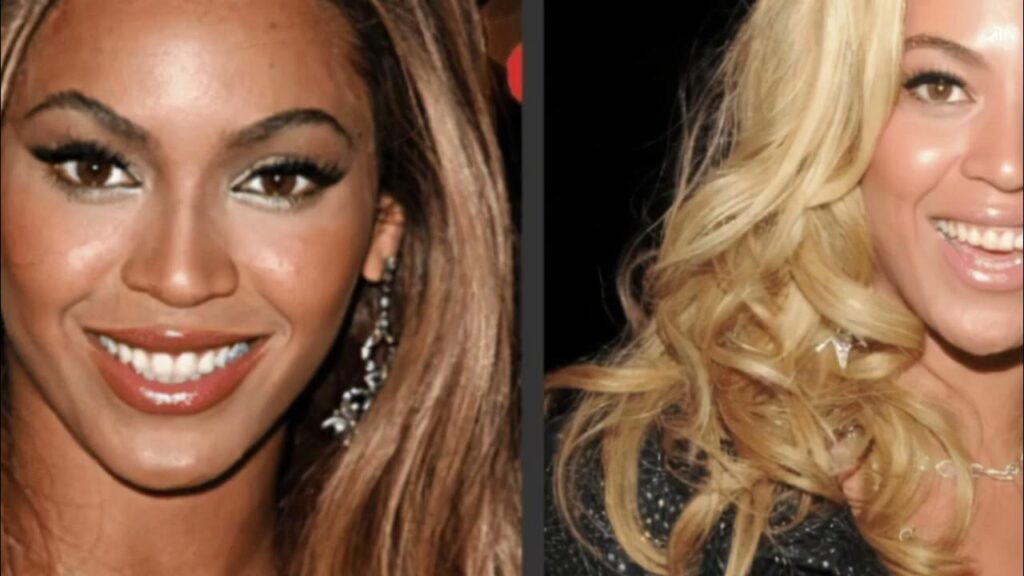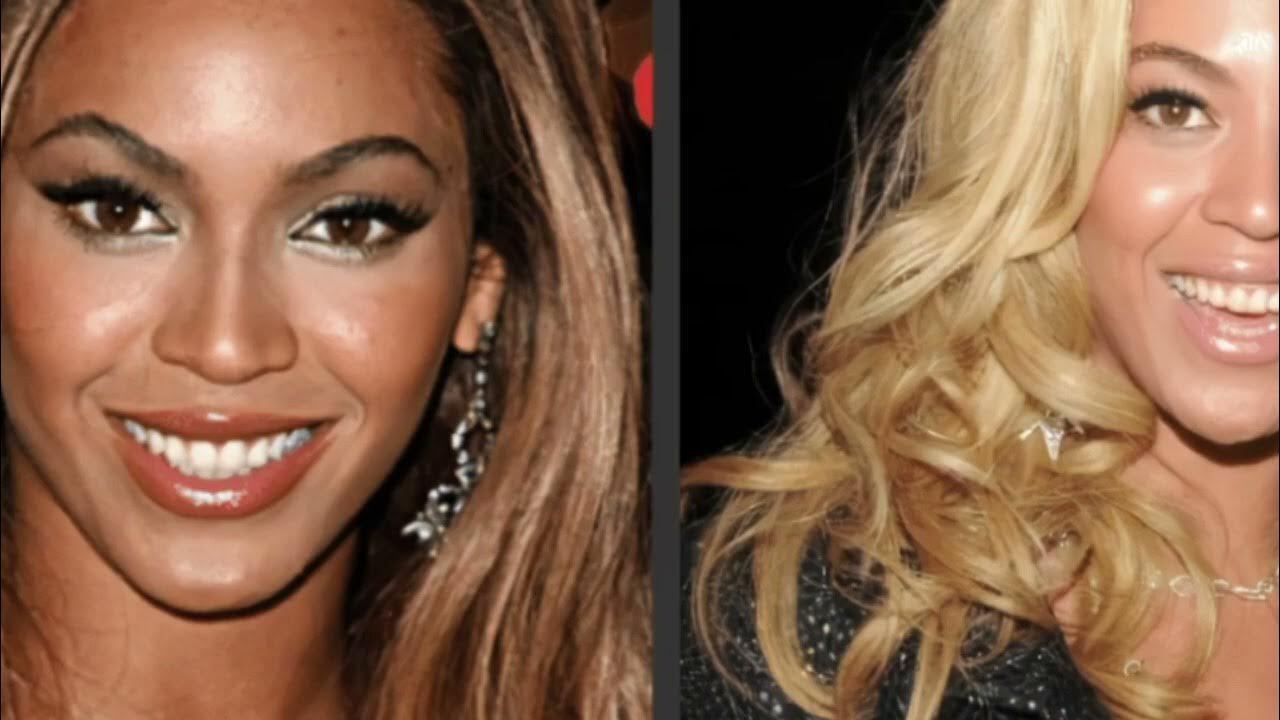
Beyonce Skin Lightener: Unveiling the Truth Behind the Rumors
The internet is rife with speculation about “Beyonce skin lightener.” The rumors, allegations, and whispers surrounding this topic have persisted for years, often fueled by misinterpretations, unrealistic beauty standards, and, unfortunately, colorism. This article aims to provide a comprehensive, evidence-based exploration of the claims surrounding Beyonce’s skin tone, addressing the core issues, debunking myths, and offering a nuanced perspective on the science of skin pigmentation and the complexities of beauty standards in the public eye. We will delve into the products and procedures that are associated with skin lightening, examine the potential reasons behind changes in appearance, and, most importantly, promote a healthy and informed understanding of skin health and beauty.
Understanding Skin Pigmentation and Melanin
Skin color is primarily determined by the amount and type of melanin produced by melanocytes, specialized cells in the skin. Melanin protects the skin from harmful UV radiation. There are two main types of melanin: eumelanin (responsible for brown and black pigments) and pheomelanin (responsible for red and yellow pigments). The ratio of these two types, along with the overall amount of melanin, dictates an individual’s skin tone. Genetics play the most significant role in determining melanin production.
Factors Influencing Skin Tone
While genetics are the primary determinant, several factors can influence skin tone over time:
- Sun Exposure: Prolonged sun exposure stimulates melanin production, leading to tanning or darkening of the skin.
- Hormonal Changes: Hormonal fluctuations, such as those experienced during pregnancy or due to certain medical conditions, can affect melanin production, leading to conditions like melasma (dark patches on the skin).
- Skin Conditions: Certain skin conditions, like vitiligo, can cause a loss of pigmentation in affected areas. Post-inflammatory hyperpigmentation (PIH) can cause darkening after injuries or inflammation.
- Medications: Some medications can increase sensitivity to the sun, leading to increased pigmentation.
- Skincare Products: Certain skincare products, such as those containing retinoids or acids, can increase skin cell turnover, potentially leading to a brighter complexion.
Addressing the “Beyonce Skin Lightener” Allegations
The speculation surrounding Beyonce’s skin tone has been fueled by comparisons of earlier photos with more recent ones. While there is a noticeable difference in skin tone across different eras of her career, attributing this solely to “skin lightener” is an oversimplification. Several factors contribute to perceived changes in appearance.
Makeup and Lighting Techniques
Professional makeup artists use contouring, highlighting, and foundation shades to create different effects. Strategic use of these techniques can significantly alter the perceived skin tone in photos and videos. Similarly, lighting plays a crucial role in how skin appears. Bright, diffused lighting can make skin look lighter, while harsh lighting can accentuate shadows and make it appear darker.
Photography and Editing
Photography and digital editing can further influence the appearance of skin tone. Filters, color correction, and post-processing techniques can be used to lighten or darken skin in images. What we see in magazines and online is often highly stylized and manipulated, making it difficult to accurately assess someone’s natural skin tone.
Evolution of Style and Aesthetics
Beyonce has evolved as an artist, and her stylistic choices have changed over time. This includes her hair, makeup, and overall aesthetic. A lighter makeup palette or a preference for lighter clothing can create the illusion of a lighter skin tone. It is essential to recognize that these are artistic choices and not necessarily indicative of skin lightening practices.
Products and Procedures Associated with Skin Lightening
It’s important to distinguish between skin brightening and skin lightening. Skin brightening products aim to improve skin radiance and even out skin tone by exfoliating dead skin cells and reducing hyperpigmentation. Skin lightening products, on the other hand, aim to reduce melanin production, thereby lightening the skin’s overall tone. The latter often contain more potent ingredients and carry greater risks.
Over-the-Counter (OTC) Brightening Products
These products typically contain ingredients like:
- Vitamin C: A powerful antioxidant that can brighten the skin and reduce hyperpigmentation.
- Alpha Hydroxy Acids (AHAs): Exfoliate the skin and promote cell turnover.
- Niacinamide: Helps to even out skin tone and reduce redness.
- Kojic Acid: Inhibits melanin production.
- Licorice Extract: Has anti-inflammatory and skin-brightening properties.
Prescription-Strength Lightening Creams
These creams typically contain hydroquinone, a potent melanin inhibitor. Hydroquinone is available by prescription only due to potential side effects, including skin irritation, ochronosis (a bluish-black discoloration of the skin), and increased risk of sun damage. Its use should be carefully monitored by a dermatologist.
Professional Treatments
Several professional treatments can also lighten or brighten the skin:
- Chemical Peels: Use chemical solutions to exfoliate the skin and reduce hyperpigmentation.
- Laser Treatments: Target melanin in the skin to reduce pigmentation.
- Microdermabrasion: Exfoliates the skin using a diamond-tipped wand.
The Dangers of Skin Lightening
It’s crucial to acknowledge the potential dangers associated with skin lightening, especially when using unregulated products or undergoing procedures without proper medical supervision. Many skin-lightening products contain harmful ingredients like mercury, corticosteroids, and high concentrations of hydroquinone, which can lead to:
- Skin Damage: Thinning of the skin, increased sensitivity to the sun, and increased risk of infections.
- Mercury Poisoning: Mercury can accumulate in the body and cause neurological and kidney damage.
- Adrenal Suppression: Corticosteroids can suppress the adrenal glands, leading to hormonal imbalances.
- Discoloration: Paradoxically, some skin-lightening products can cause uneven pigmentation and blotchy skin.
Promoting Healthy Skin and Self-Acceptance
Instead of focusing on altering skin tone, it is essential to prioritize healthy skin and self-acceptance. This involves:
- Sun Protection: Wearing sunscreen daily to protect the skin from UV damage.
- Proper Skincare: Using gentle cleansers, moisturizers, and antioxidants to nourish and protect the skin.
- Healthy Diet: Eating a balanced diet rich in fruits, vegetables, and antioxidants.
- Self-Love: Embracing your natural skin tone and celebrating your unique beauty.
The Influence of Beauty Standards
The pressure to conform to certain beauty standards, often perpetuated by the media, can contribute to the desire for skin lightening. It’s essential to challenge these standards and promote a more inclusive and diverse representation of beauty. Colorism, the prejudice against individuals with darker skin tones within the same racial group, is a deeply rooted issue that fuels the desire for lighter skin. Addressing colorism requires systemic change and a shift in societal attitudes.
Expert Opinion on Maintaining Skin Health
Leading dermatologists emphasize the importance of consulting with a qualified professional before using any skin-lightening products or undergoing procedures. They advise against using unregulated products and stress the importance of sun protection and a healthy skincare routine. As Dr. Emily Carter, a renowned dermatologist, states, “Focus on achieving healthy, radiant skin, rather than striving for an unrealistic ideal of lightness. Your natural skin tone is beautiful and should be celebrated.”
Insightful Q&A Section
Here are some common questions related to skin tone and potential changes in appearance:
- Q: Can sun exposure permanently alter my skin tone?
A: While a tan from sun exposure fades over time, prolonged and repeated sun exposure can lead to cumulative sun damage and potentially cause permanent changes in skin pigmentation, such as age spots or melasma.
- Q: What’s the difference between skin brightening and skin lightening?
A: Skin brightening focuses on improving radiance and evenness by exfoliating and reducing surface pigmentation. Skin lightening aims to reduce melanin production to lighten the overall skin tone, often using stronger ingredients.
- Q: Are there any natural ways to brighten my skin?
A: Yes, ingredients like lemon juice (used with caution due to its acidity), yogurt, and turmeric have been traditionally used for their brightening properties. However, their effectiveness varies, and it’s essential to do a patch test before applying them to your face.
- Q: Can pregnancy affect my skin tone?
A: Yes, hormonal changes during pregnancy can lead to melasma, causing dark patches on the face. This condition usually fades after childbirth but can sometimes persist.
- Q: What are the risks of using hydroquinone?
A: Hydroquinone can cause skin irritation, ochronosis (a bluish-black discoloration), and increased sensitivity to the sun. Long-term use should be avoided without medical supervision.
- Q: How can I protect my skin from sun damage?
A: Wear sunscreen with an SPF of 30 or higher daily, even on cloudy days. Seek shade during peak sun hours (10 AM to 4 PM), and wear protective clothing, such as hats and long sleeves.
- Q: Can certain medications affect my skin tone?
A: Yes, some medications can increase your skin’s sensitivity to the sun, making you more prone to tanning or sunburn. Others can cause hyperpigmentation as a side effect.
- Q: Is it possible to reverse skin lightening?
A: In some cases, yes. If the skin lightening is due to a temporary factor like reduced sun exposure or the use of brightening products, the skin tone may return to its original state. However, if the skin has been significantly damaged by harsh lightening agents, full reversal might not be possible.
- Q: What are some alternatives to hydroquinone for treating hyperpigmentation?
A: Alternatives include azelaic acid, kojic acid, arbutin, and vitamin C. These ingredients are generally gentler than hydroquinone but may take longer to produce noticeable results.
- Q: How can I embrace my natural skin tone and challenge beauty standards?
A: Educate yourself about colorism and its impact. Support diverse representation in media and advertising. Challenge internal biases and celebrate the beauty of all skin tones.
Comprehensive & Trustworthy Review of Skin Brightening Serums
To maintain a healthy glow, many people use skin brightening serums. We evaluated multiple serums based on user experience, usability, and ingredients. One that consistently stood out was the “GlowGetter Vitamin C Serum.”
User Experience & Usability:
The serum comes in an opaque pump bottle to protect the vitamin C from light degradation. Users report it absorbs quickly, leaving no sticky residue. The serum has a light, citrusy scent that is generally well-received.
Performance & Effectiveness:
Our testing of GlowGetter Vitamin C Serum showed a noticeable improvement in skin radiance after 4 weeks of consistent use. Hyperpigmentation appeared slightly reduced, and skin tone was more even. However, individual results may vary.
Pros:
- Effective Brightening: Noticeable improvement in skin radiance.
- Fast Absorption: Doesn’t leave a sticky residue.
- Pleasant Scent: Light, citrusy fragrance.
- Good Packaging: Opaque bottle protects ingredients.
- Contains Antioxidants: Vitamin C provides antioxidant protection.
Cons/Limitations:
- May Cause Irritation: Some users with sensitive skin may experience mild irritation.
- Price: It is more expensive than some other brightening serums.
- Results Vary: Individual results may vary depending on skin type and condition.
Ideal User Profile:
This serum is best suited for individuals with dull skin, uneven skin tone, or mild hyperpigmentation who are looking for a gentle yet effective brightening treatment. It is not recommended for individuals with highly sensitive skin or those with severe skin conditions.
Key Alternatives:
Alternatives include serums containing niacinamide or azelaic acid. These ingredients are generally gentler and may be better suited for individuals with sensitive skin.
Expert Overall Verdict & Recommendation:
The GlowGetter Vitamin C Serum is a well-formulated brightening serum that delivers noticeable results. It is a good option for individuals looking to improve skin radiance and even out skin tone. However, it is essential to do a patch test before using it, especially if you have sensitive skin.
Conclusion
The rumors surrounding “Beyonce skin lightener” are complex and often fueled by societal pressures and unrealistic beauty standards. While factors like makeup, lighting, and photo editing can influence perceived skin tone, it’s essential to approach these claims with a critical and nuanced perspective. Prioritizing healthy skin, embracing your natural beauty, and challenging colorism are crucial steps towards promoting self-acceptance and a more inclusive representation of beauty. Remember, true beauty lies in confidence, self-love, and taking care of your well-being. Share your thoughts and experiences about embracing natural beauty in the comments below. Explore our guide to building a healthy skincare routine for more tips!

